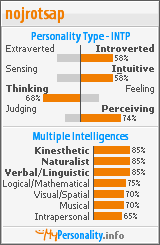I’ve read a few books in the past couple weeks. Here is my review:

“Getting Things Done”, by David Allen: Holy cow this book is a lifesaver. I have been a fan of the GTD method for some time now. Most computer nerds implement it in some way or another. I couldn’t make it work for me, though. The reason was that I was trying all the tools without the foundation. It is not an exagerration to say that this book has revolutionized the way I deal with commitments. For the first time in months, I feel in control of my workload (now I just have to work on perspective). If you constantly find yourself avoiding commtiments because you weren’t sure exactly what you had to do, this book will help. If you find yourself overwhelmed because you know exactly how much you have to do, it will help. If you look at the hundreds of piles of projects on your desk, this book will help.
Wait, that’s not true. The book won’t help at all. The information in the book, if practiced thoroughly will help. All I can say is that I am significantly less stressed as a result of getting everything out of my head and into my new system. I finished the book last night, but started implementing about a month ago, and have commented for fear that I may drop out. I’ve floundered, but now know how to get back on the horse.

Percy Jackson book 2: great story, in the style of an old epic tale. This book made me want to finish the series. 4 stars (still a little cliched writing).

Percy Jackson book 3: mediochre. I still want to finish the series thanks to book 2, but this was a bit of a letdown, not sure why. Also, not a very good job of foreshadowing (or maybe too good), since the twists at the end were absolutely expected.

“Walls”, by Ryan Rush: This book was given to me by Tyndale publishers. Actually, I requested it. They sent a free copy, I review it in whatever way I see fit. Long story short, the book was dull. I couldn’t bring myself to finishing the third chapter. It seems like another stereotypical self-help book from a pastor. I appreciate the idea of the book (we build up walls between ourselves and others, including God). I agree that unhealthy boundaries are a primary cause of many problems. I agree that we have to tear down walls that block us off from others and God. But the book itself was just uncompelling. I suppose that if you are suffering from not feeling close to God, and can’t figure out what the wall is, it might help. I don’t know, I didn’t finish it. Think of the book as any other book from any other pastor about their personal “solution to people’s problems that’s worthy of a book since it grew my church big”. I wish Rush the best in his ministry, and think that the ministry itself would be helpful. The book, to me, was not.

“This Is Your Brain In Love”, Dr Earl Henslin: Another free book, this one from Thomas Nelson. Again, I get to review it however I want. So I will review it typing with only one hand. But seriously, I got this book for my wife. She saw the list of available booksneeze books, and said “hey, that sounds contagious”. Well, not actually, but you get the point. It was contagious.
I have read a lot of resources on Christian sexuality (which is not all that different form other’s sexuality it turns out). This is the first resource by a Christian that I have read that is based in neurophysiology. Instead of assuming that the problem is a lack of communication, the author shows you how your brain might be the cause of the problem (manifested in lacking communication). The author started as a family therapist, but realized the strategies he was taught didn’t work. he attended a seminar on brains, and had an epiphany. perhaps relational problems are the result of unhealthy brains.
He begins by describing a healthy relationship, with the best chapter every by any author on sexuality. In it, he basically says that Americans are dualistic and focus more on body parts than sexuality. We need to change. I agree. Then, he describes 5 common brain imbalances that cause tension in relationships: scattered, over-focused, blue mood, agitated, and anxious lovers. Turns out, I’m agitated. He also prescribes non-medicinal solutions to each brain type, with additional info for those who need medical help.
The best part? He never says “it’s not your fault”. He always says, “it’s harder for you because of your brain, but get over it and think right.” Predispositions are factors, but never solely responsible.
Finally, Henslin ends by describing some “best practices” for couples. Practical, honest, and simple enough to be acted on.
Any couple married more than 6 months could really learn from this book.
Note: all pictures were ripped off from amazon.com








